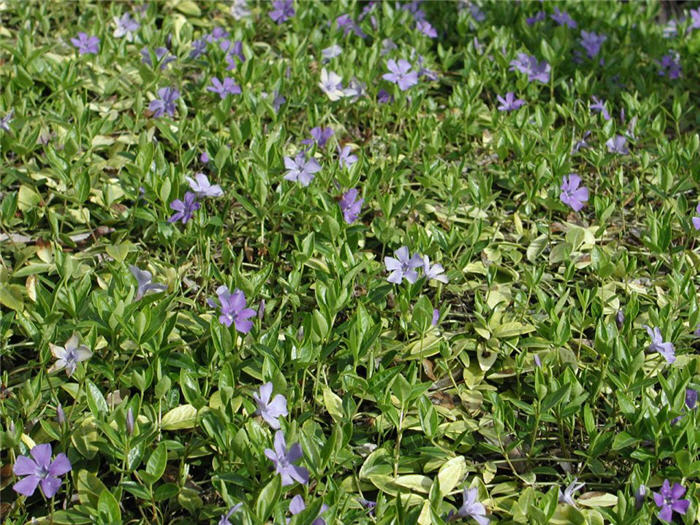| Botanical Name: Vinca minor | |
| Common Name: Dwarf Vinca or Periwinkle |

-
Anatomy
-
Culture
-
Design
Plant Type
Broadleaf Evergreen, Ground cover
Height Range
Under 1'
Flower Color
Blue, Lavender, Purple, White
Flower Season
Spring
Leaf Color
Dark Green
Bark Color
n/a
Fruit Color
n/a
Fruit Season
n/a
Sun
Half, Shade
Water
Very Low, Low
Growth Rate
Fast, Moderate
Soil Type
Sandy, Clay, Loam, Rocky, Unparticular
Soil Condition
Average, Rich, Well-drained, Dry
Soil pH
Neutral
Adverse Factors
Invasive
Design Styles
Formal, Japanese, Woodland
Accenting Features
Showy Flowers
Seasonal Interest
Winter, Spring
Location Uses
Entry, Shrub Border, Parking Strip, Walkways, With Rocks
Special Uses
Cascade, Erosion Control, Filler, Mass Planting, Naturalizing
Attracts Wildlife
n/a
Information by: Stephanie Duer
Photographer: Linda Engstrom
Photographer: Linda Engstrom
-
Description
-
Notes
Periwinkle is a hardy, evergreen groundcover with glossy green leaves and cheery periwinkle blue or purple flowers in the spring. This plant is best suited to large areas and shrub borders, as it would overwhelm most perennials. Avoid its use along the riparian corridor or in urban/open space interfaces as it is aggressive and can escape, overtaking native plants. Easier to control in dry shade areas. Grows about 6 to 8 inches high, and spacing for planting purposes is about 2 to 3 feet, but its spread is indefinite.
Most suitable in shrub borders as it can be an aggressive groundcover. Avoid use along riparian corridors or in urban/open space interfaces as it can escape and overwhelm native plants. Does well in dry shade.